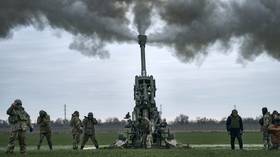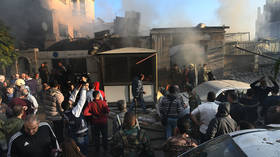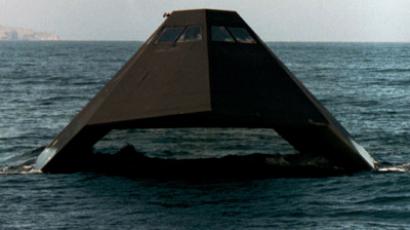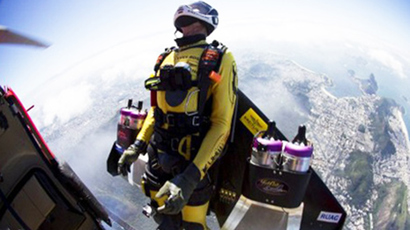Vacuum spidermen: US military takes interest in wall-climbing gimmick (VIDEO)
Normally when students say something sucks so hard it has them climbing up the walls, they are not thinking of a vacuum-powered spidey-suit. But a new backpack designed by a US university team will turn its user into a literal wall walker.
With $20,000 dollars in seed money provided by the US Air Force Research Laboratory (AFRL) and nine months to get the project off the ground, a team of engineers from Utah State University came up with a vacuum-powered device capable of scaling walls.The PVAC, short for personal vacuum assisted climber, is made up of two hand-held paddles attached to a not-so-stealthy vacuum-powered pack. The pack generates so much force it can hold up to 700 pounds of weight, depending on the altitude of course.The device’s user can climb a variety of surfaces, from stucco to plate glass, albeit with something akin to a deafening dirt devil strapped to their back.Despite its audible setback, the device was impressive enough in its potential military application to beat out 17 other schools and 33 similar devices at the annual AFRL Design Challenge. The goal of the challenge was to create a device capable of scaling great heights without ropes or hooks.The schools had to race against the clock to see who could get four soldiers up a 90-foot vertical surface in 20 minutes with a mechanism weighing under 20 pounds.Suffice it to say, the Utah team, who now call themselves the Ascending Aggies, came out on top.While any battle-ready version of the pack would require hands free usage so that a soldier could keep a finger on the trigger during his ascent, and be quiet enough to not sound like a vacuum cleaner is being pushed up an enemy compound, the team was proud of their results."We had no problem: it sucked just fine. Probably bad way to say it," Garrett Vaughan, one of the team members, told KPLC-TV.One thing that doesn’t suck is the fact that the team will now get another $50,000 to develop the project further. Now they are set to compete for another $100,000 to see just how high they can take the PVAC, and how high the PVAC will ultimately take soldiers on the covert operations of tomorrow.














